These 4 tech-for-good startups won big in the 2023 UpPrize Social Innovation Challenge
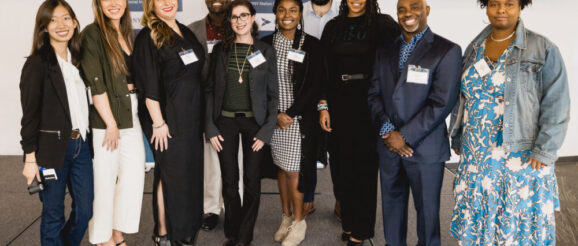
Pittsburgh’s UpPrize Social Innovation Challenge continued funding tech for good by awarding four more companies cash prizes to make the world better.
Launched in 2015, the UpPrize challenge exists to support entrepreneurs in developing technology to solve and address social problems. The program especially seeks to fund startups founded by entrepreneurs of marginalized or economically underserved backgrounds. Even if a founder accepted into the months-long program doesn’t walk away with a prize in the annual competition, from the connections to the bootcamps, they have the opportunity to participate in programming on money management, customer discovery, and how to effectively run their business.
After months of founder preparation, pitch competitions and judge deliberations, at the Carnegie Science Center on Thursday evening, the competition finally announced its winners: Farm to Flame, Korion Health and , plus one bonus honoree in Testa-Seat.
UpPrize is run by Innovation Works and funded by the BNY Mellon Foundation of Southwestern Pennsylvania. In contrast to last year when the 2022 UpPrize winners walked away with different dollar amounts based on where they placed, the previously mentioned startups were selected as winners of three categories — Sustainability, Racial Equity and Economic Justice. In total, the 2023 competition’s winners walked away with $350,000.
Farm to Flame — Sustainability
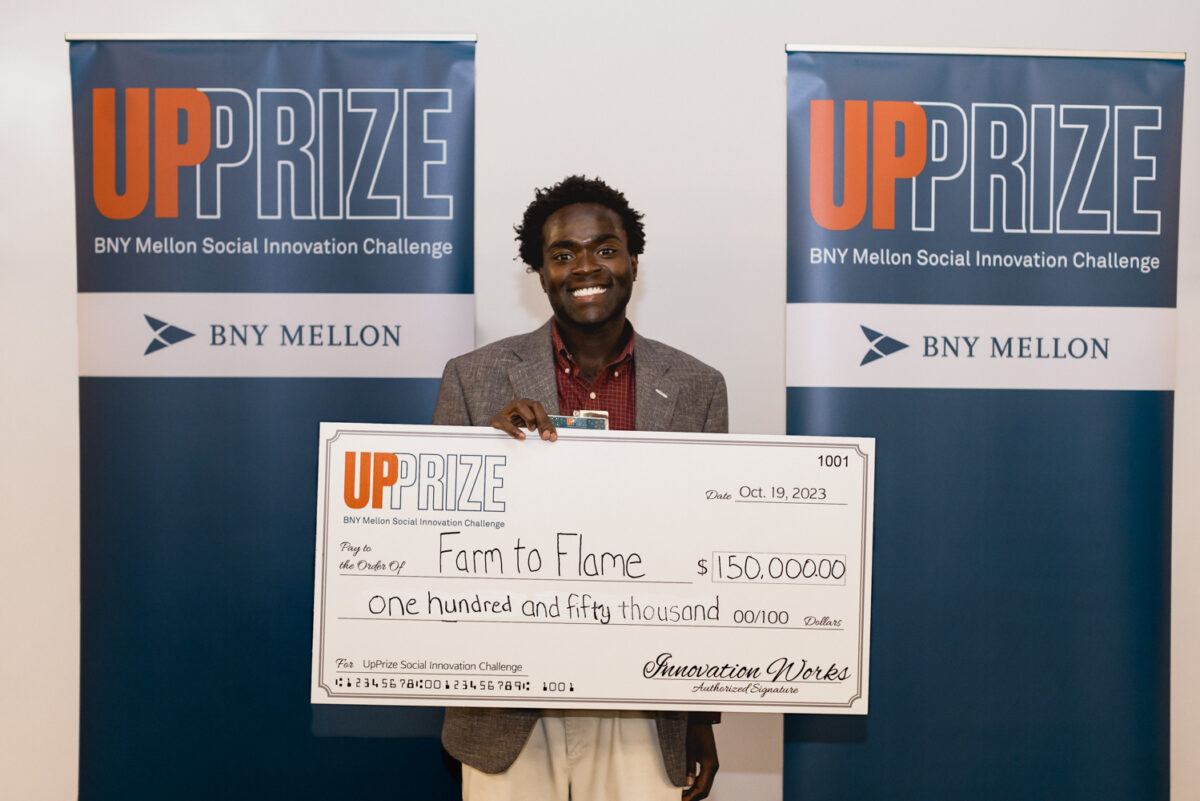
Farm to Flame cofounder Kwaku Jyamfi. (Courtesy The Warhol Academy Elisa Cevallos)
Farm to Flame is on a mission to ensure that people have access to electricity that is both affordable and reliable. With the Duquesne-based startup’s smokeless, odorless generators, cofounder Kwaku Jyamfi told the audience that it can provide renewable power at half the cost.
“We built the Farm to Flame generator [as] a source of carbon neutral electricity that’s reliable with no smoke and no motor,” Jyamfi said.
Because the company uses materials that are typically thrown away, such as yard waste, cornstalks, woody debris and sawdust, the company is taking a sustainable approach all around, he added.
Initially, Farm to Flame was awarded $75,000 for the Sustainability category but also took home an additional $75,000 for the overall category.
Korion Health — Racial Equity
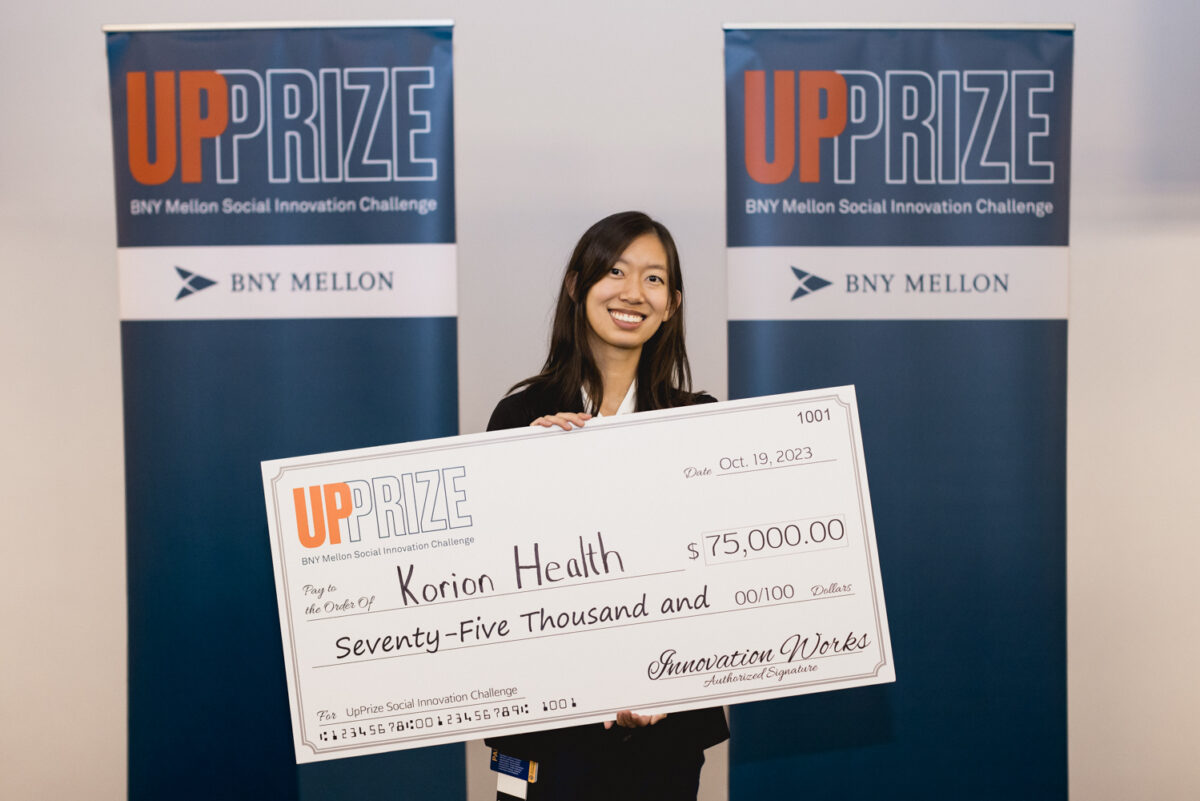
Korion Health cofounder Anna Li. (Courtesy The Warhol Academy Elisa Cevallos)
The idea for Korion Health was born when, early in her career as an MD, Anna Li realized just how many patients could have avoided more serious health problems if they’d gotten early medical intervention. The problem was, Li recalled, many of her patients couldn’t make it to follow-up appointments with their doctors due to distance or other barriers to healthcare. So Li decided to use what she’d been learning at the University of Pittsburgh to create an electronic stethoscope to empower users to perform heart and lung screenings in the comfort of their own homes.
“You can record your heart sounds just like a clinician would in a clinic,” Li said. “This also removes all the barriers. Not only is it affordable, but it can easily fit the home. It can provide privacy for patients and [allow] them comfort.”
Korion Health was awarded $75,000.
Sustainible — Economic Justice
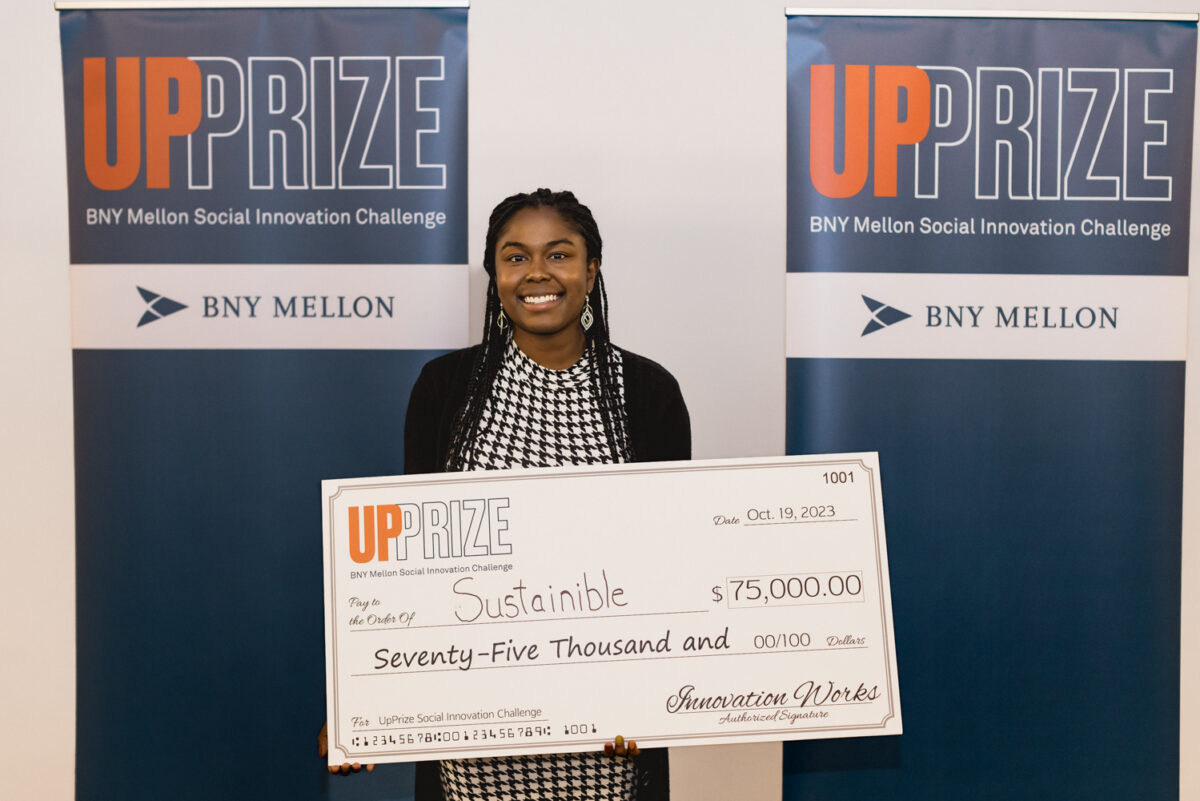
Sustainible CEO and cofounder Talpha Harris. (Courtesy The Warhol Academy Elisa Cevallos)
Whether they know it or not, most small entrepreneurs need an entity that can monitor their health, Sustainible CEO and cofounder Talpha Harris said. That’s where Sustainible comes in: By providing an input/output-powered platform to evaluate the sustainability and feasibility of a given business model, the company helps other budding businesses improve. If they’re not quite eligible for the grants and partnerships that can help them grow, or figure out how to get there.
“For the entrepreneur, it’s pretty simple,” Harris said. “They can take an assessment, get an action plan on how to build a better business, then start taking the steps to build a more sustainable business and make progress.”
Sustainable was awarded $75,000.
Testa-Seat — Sustainability
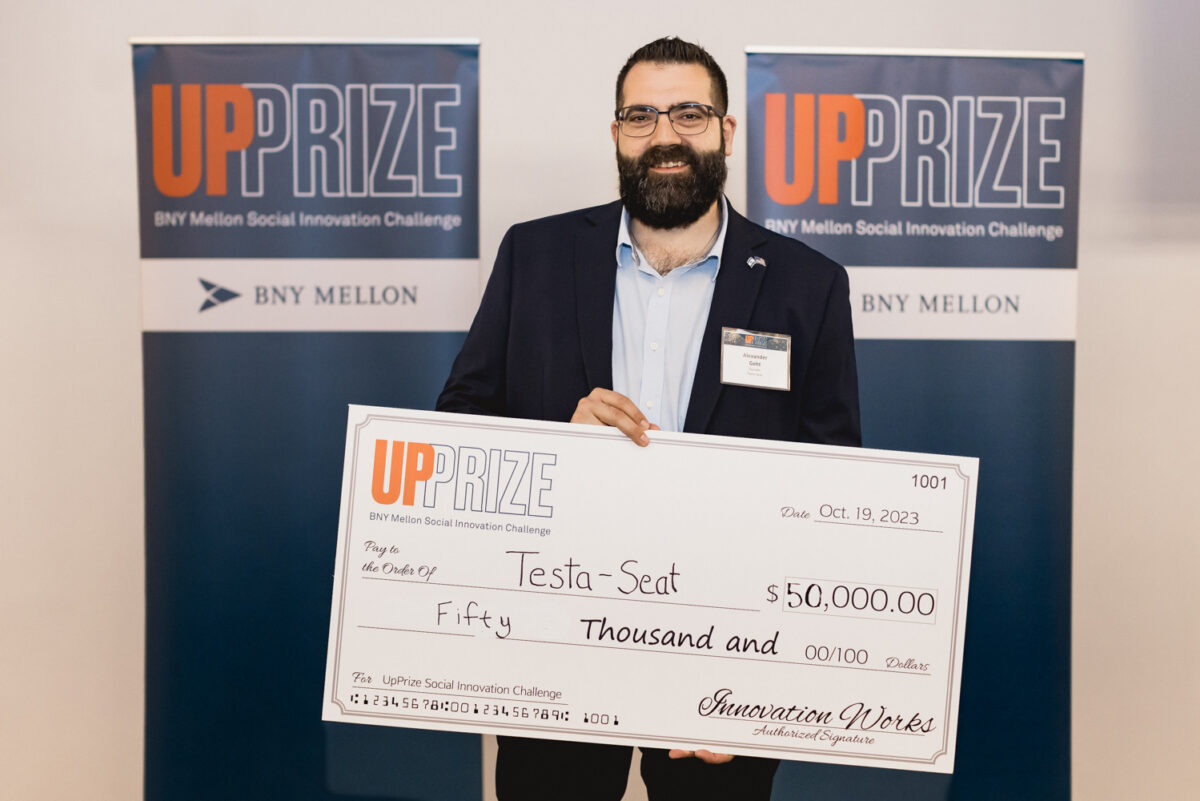
Testa-Seat CEO Alexander Ghet. (Courtesy The Warhol Academy/Elisa Cevallos)
Testa-Seat CEO Alexander Ghet explained that the Bellevue startup produces custom seating systems for kids with disabilities because it’s a population the technology industry typically fails to provide for. This matters because improper seating during child development, in particular, can cause damage, he said. The company’s body-contouring therapeutic positioning equipment offers support that can benefit those with mild or moderate control of their bodies.
“Many of the companies are not stocking assistive technology products,” Ghet said — or, he added, companies that try to serve this population struggle to connect with customers, or to convince investors that their products are worthy of funding.
By working with therapists, clinicians, and families impacted, Ghet said the goal is to set new standards for disabled children and adults with regard to comfort and wellness.
Although there was only meant to be one winner for the Sustainability category, UpPrize judges were so impressed by Testa-Seat that the company was awarded $50,000.
The other semi-finalists (some of which you might recognize from Technical.ly’s RealLIST Startups list) were:
